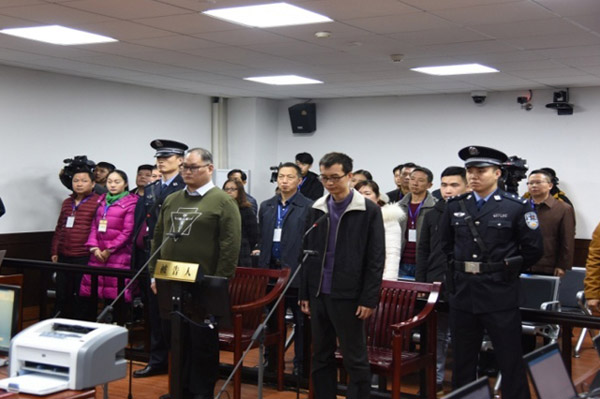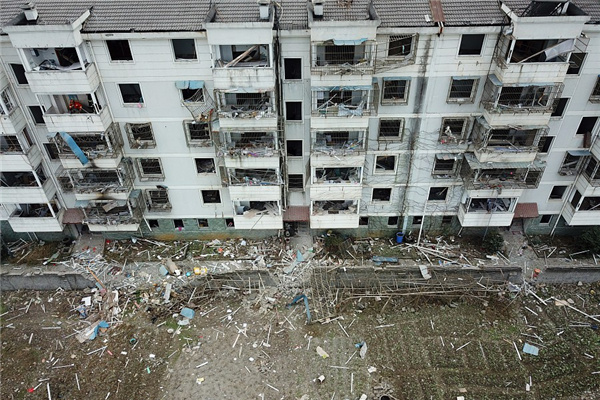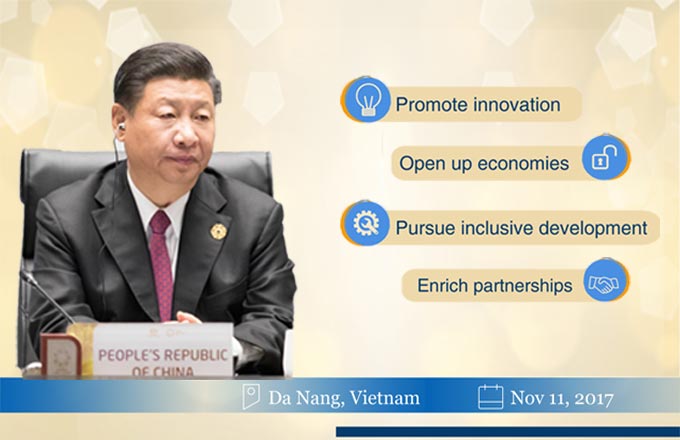Subversion won't be tolerated
 |
|
Lee Ming-che and Peng Yuhua at the court. [Photo from Weibo account of Yueyang Intermediate People's Court] |
The Yueyang Intermediate People's Court in Hunan province sentenced two men to seven years and five years in prison on Tuesday for subversion of State power. Peng Yuhua and Lee Ming-che accepted the verdict, saying they would not appeal their sentences.
The trial of the case, which proceeded in an open manner and invited 30 people, including the defendants' close relatives, delegates to the local people's congress and journalists, shows China's determination to crack down on those attempting to subvert the State's political power and its zero tolerance toward actions aimed at endangering State security. The court verdict will consolidate public confidence in China's efforts to build a modern socialist country governed by law.
The manner in which the case was handled also reflects the institutional openness of judicial practices in China. The Criminal Procedure Law stipulates that all cases except for those related to State secrets, individual privacy and juveniles be handled in an open manner.
The case of Peng and Lee, a Taiwan resident, was therefore designated for open trial, which manifested the authorities' confidence in judicial transparency.
As a matter of fact, the judiciary has handled some highly sensitive cases, including the trial of former Chongqing Party chief Bo Xilai, in an open manner, thereby ensuring a fair trial and just punishment for the guilty.
The open trial of Peng and Lee will also help the public to know that the two defendants attempted to subvert State political power by forming online chat groups, and used them in a planned way to spread the idea of political subversion. Their activities violated China's Constitution and laws. And no country, let alone China, will tolerate such activities.
The case once again shows the judiciary's determination and ability to safeguard State security and maintain social stability in accordance with the law.






















